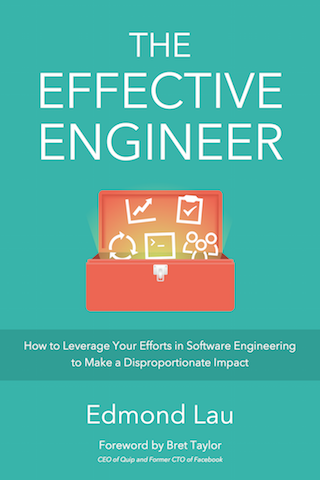The 3 Keys to a Remarkable Career

For the past few years, I’ve been coaching an engineering leader at Google on how to think about growing her career. She had been with the company for many years and was ready to play a bigger role.
She didn’t just want to be another engineer who could deliver quality code in a timely manner. Google already had an abundance of those. Instead, she longed to make her own unmistakable mark.
How could she stand out among the 20,000+ engineers at the company? How could she create a meaningful impact on her team and the product she worked on?
Our conversations around her career development generally centered around three main themes:
- What team she ought to work on. What teams were core to Google’s mission and company priorities? Where could she build products that directly contributed to meaningful business value for the company?
- How she could get more energized and motivated about the work she did. What did she enjoy working on the most? What projects would provide opportunities for her to learn new things?
- What she considered to be her differentiating strengths. Whereas many engineers tend to be heads-down, focused on coding, she had a fearless ability to manage complexity across multiple teams and systems. She could effectively keep projects on track and quickly figure out the cause of things that went wrong.
Having built clarity around each of these dimensions, she then sought out opportunities that aligned with them and grew to become a tech lead and manager at the company. She earned the respect of her peers, regularly presented key initiatives to senior leaders in her organization, and started to represent the company at external events. She built a remarkable career for herself.
By working through similar questions, you can find your path to doing the same too. In this post, I share a simple but powerful framework you can use for distinguishing yourself and creating a remarkable career.
A Framework for a Remarkable Career
How to stand out in your engineering career isn’t just relevant to Googlers, of course. Today, there are estimated to be around 20 million software developers in the world. 1 2
With such a large job market, how do you differentiate yourself from the crowd? How do you ensure that 5 or 10 years down the line, you’re not just yet another engineer doing the same things you’re doing now — but rather an engineering leader who others know and respect, working on the things that excite you the most? How do you go from someone who’s fighting to get every job interview, to someone who the top companies actively compete to recruit?
These questions often surface in leadership coaching conversations or career development talks that I have with engineers. And I’d like to outline a simple structure for identifying what to focus on to transition from being a good engineer to a great one:
Identify the intersection of your passions, your strengths, and the market’s demands.

Those three components form a Venn diagram — and in their intersection, you find your path to crafting an amazing career. If you miss any one element, you’ll end up falling short.
When you have passion and skill in an area, but there’s no market demand, you’ve created yourself a hobby — which can be fun and worthwhile — but not a career.
When you’re passionate about a high-demand area, but you lack the skills, you won’t be able to materialize the impact that you want to create. And you’ll end up frustrated at the lack of progress and your inability to execute — at least until you find an adjacent area or role where you do have the skill.
When you excel in a high-demand area, but you lack passion for what you’re doing, you might make good money. But sooner or later, you’ll get bored and lose motivation. You’ll wonder why you’re spending 40 or more hours a week on unfulfilling work that doesn’t give your life any meaning.
Let’s go through each element in more detail.
Passions, Strengths, and Market Demand
To find your passions, ask yourself:
- What activities get you the most excited?
- What type of work brings you into flow — work where you get so engaged that you don’t even notice how much time has passed?
- What type of work energizes you, potentially leaving you more excited and more stoked than when you started?
When thinking about your passions, it’s also helpful to think about their foils — the activities that you really dislike doing. What drains your energy by a disproportionate amount? Meetings? Emails? Prototyping? Design? Operations?
To identify your strengths, ask yourself:
- What parts of engineering are you really great at?
- What are your competitive advantages — particularly when it comes to non-technical skills — relative to your peers or relative to other engineers?
- What adjacent disciplines to your current strengths can you also learn and master?
When considering your strengths, it’s really powerful to become really good at 2 or 3 things. As Scott Adams explains, it’s much harder to become the best at one specific thing, than to become the top 25% of 2 or more skills that you combine to do extraordinary things. 3
For example, I’m a stronger engineer than many people, but I harbor no illusions that I’ll ever attain Jeff Dean-level proficiency at engineering. I’m not a better writer than the vast majority of full-time authors out there, but I’m good at distilling the essence of what’s important and communicating that to people. Those skills together create an opening where I can communicate about, teach, and coach on technical topics.

Discover what differentiates you from the crowd.
Download my Strengths Finder with 30+ targeted questions to identify your core strengths.
Lastly, to identify the market’s demands,
- What hot trends seem to be in high demand in the market? For example, machine learning, data science, and mobile development have all seen high levels of growth in recent years.
- What teams and product areas in your company create the greatest value for your business?
- What strategic product bets or engineering investments do you believe might create massive value?
When thinking about market demands, the key insight is to align your engineering efforts with the domains, companies, teams, and initiatives where success in your role translates into business value.
Finding Your Own Path
When you step into your intersection of passion, strengths, and market demand, you create a role for yourself where you can sustainably and effectively create impact.
That’s why finding the intersection of the three areas and searching for the opportunities within that intersection is so critical.
If it’s not obvious where your intersection is, however, don’t despair. The path to finding it takes creativity, but one of the best aspects of the job title “engineer” is that your role can be extremely flexible. As an engineer, you solve problems. And you should leverage all of your skills — both technical and non-technical — to do that.
It took me years before I discovered and hit my own stride in the focus area of user growth and engagement. I didn’t know this field even existed when I first started my career. This field combines my passion in shaping user behavior with my strengths in product leadership, data analysis, and writing into a high-demand area that every startup needs to succeed.
And it took me a decade to discover leadership coaching for engineers as another field that energizes me, leverages my strengths in listening and seeing the possibilities in people, and adds immense value to those I work with.
The long time frames here don’t mean that you just wait passively and see what shows up in your career. Rather, it’s a continual process of learning — at any time, you focus on the area that best represents the intersection for you. Your interests will evolve over time as a function of your experiences. Your skills will grow. And what the market and what society need will also change. With each shift, new possibilities become available to you.
How will you make use of them?

Start by finding out your core strengths.
Download my Strengths Finder with 30+ targeted questions to identify your core strengths.
Global Developer Population and Demographic Study 2016 V2, Evans Data Corporation. ↩
Abel Avram, “IDC Study: How Many Software Developers Are Out There?”, InfoQ, January 31, 2014. ↩
Scott Adams, “Career Advice”, The Dilbert Blog, July 20, 2007. ↩

“A comprehensive tour of our industry's collective wisdom written with clarity.”
— Jack Heart, Engineering Manager at Asana
“Edmond managed to distill his decade of engineering experience into crystal-clear best practices.”
— Daniel Peng, Senior Staff Engineer at Google

“A comprehensive tour of our industry's collective wisdom written with clarity.”
— Jack Heart, Engineering Manager at Asana
“Edmond managed to distill his decade of engineering experience into crystal-clear best practices.”
— Daniel Peng, Senior Staff Engineer at Google


















Leave a Comment